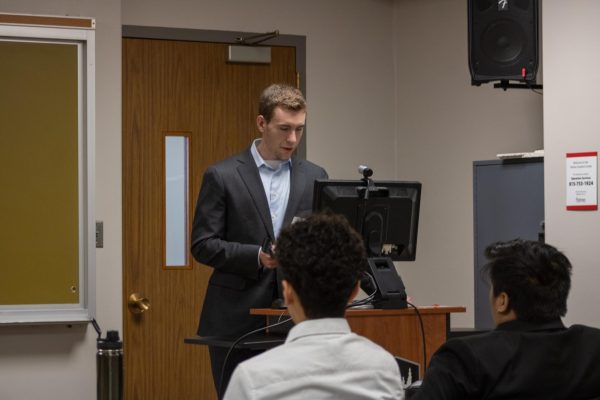NIU makes plans to assist in holding budget
December 5, 2008
After Gov. Rod Blagojevich’s request last Wednesday that all public universities hold back 2.5 percent of their budgets, NIU continues to prepare for dealing with the news.
NIU must reserve approximately $2 to $3 million in the seven months remaining in the fiscal year, said Kenneth Zehnder, associate director of External Affairs. In essence, he said, NIU is giving back the nearly 2 percent increase it received last year. In 2006, NIU received a 1 percent increase, and in the two years before that, it had to decrease its budget.
The effects of the economic situation have already been felt university-wide.
“We’ve all been dealing with the deteriorating financial situation, and the foundation is no exception,” said NIU Foundation President Mallory Simpson at Thursday’s Board of Trustees meeting. “We’re doing everything we can to reserve resources; our endowment is well-diversified and structured and is designed for recovery.”
Blagojevich has also vetoed a line item for construction, and while NIU was hoping to not replace that funding with student fees, after the latest developments, they were given no choice.
At the Board of Trustees meeting, President John Peters said NIU has already had to use its own local funds in large part to maintain operations such as payroll.
“We have been working on this for several months,” he said. “We have in place a series of financial contingency plans that hopefully protect educational quality and jobs.”
The plans consist of NIU freezing all but the most crucial new hires, reducing expenditures on travel and equipment and scaling back on operations.
Peters said he fears that given the size of the Illinois budget deficit and the overall economic crisis the country is currently facing, we need to be prepared for future reductions.
“We need to be ready for the very real possibility for further reductions for both this year and into the future,” Peters said.
Any tuition increases likely won’t take effect until fall of 2009, Zehnder said. It is unseen how this will affect future tuition.
Admissions Director Bob Burk said the fact that new students compare tuition rates at prospective universities is actually beneficial to NIU as it is still a relative bargain regardless of whether an increase occurs.
“The days of inexpensive education are long gone,” Burk said, “but I believe NIU’s costs are very attractive.”
NIU is also waiting for word on whether they will be receiving either state or federal capital infrastructure funding to pay for vital projects such as Stevens Hall, Zehnder said.
Measures such as layoffs have not been discussed and likely won’t occur unless Blagojevich is granted the authority that he has asked for; to hold back 8 percent of funds, Zehnder said.












